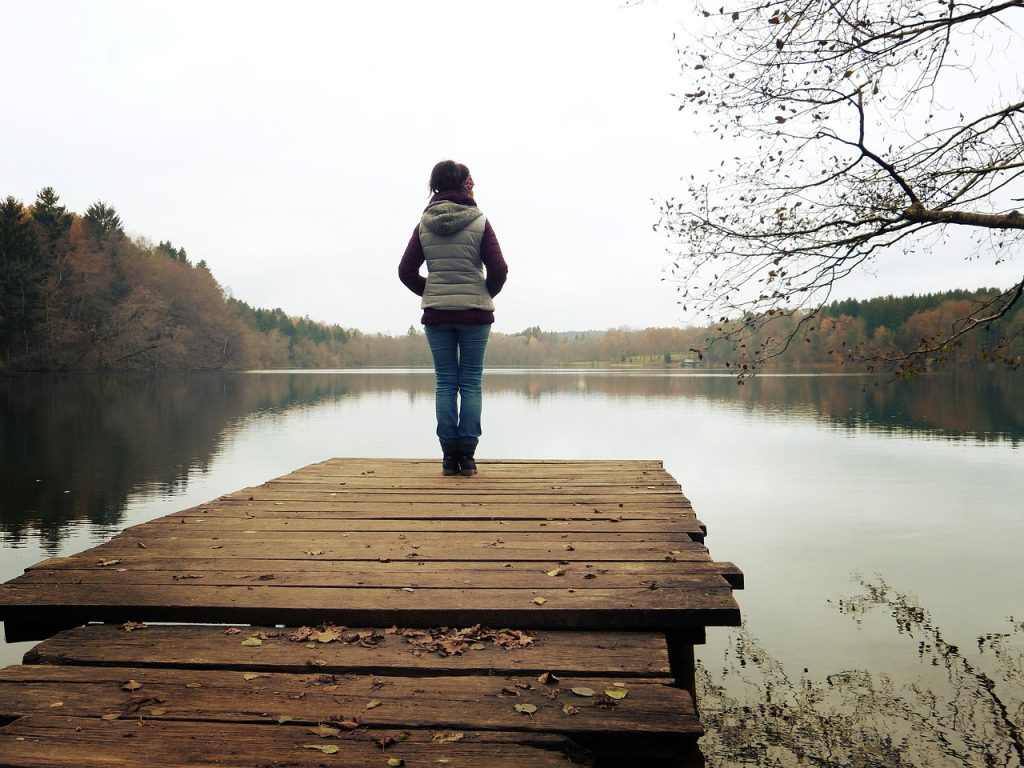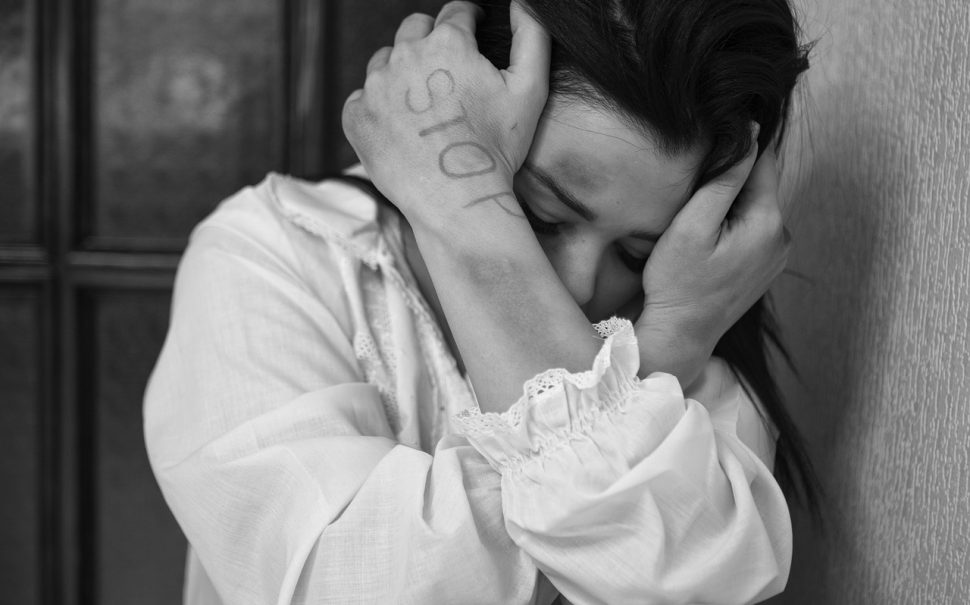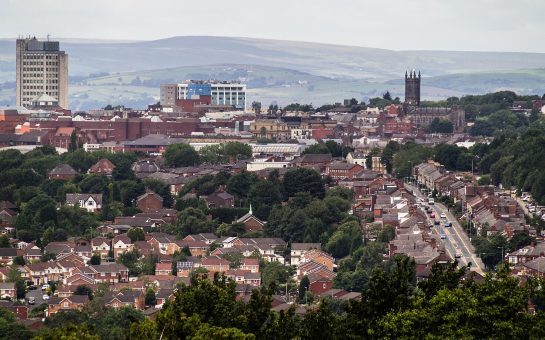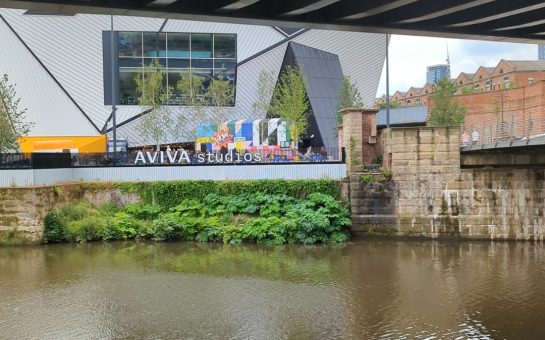When the person who you love most, who is your whole world, is the one who hurts you in ways you never imagined… what do you do? Most people’s immediate answer is to leave, but an abusive relationship is rarely that simple.
A combination of the shortfalls of the system and her abusers’ manipulation, a woman from Oldham has spoken about her struggles to leave a past relationship in which her partner abused her.
Bravely waiving her anonymity, Angela Wright was in a relationship with her partner Steven Blades, having met him in the 1980s when she was just 14.
He abused her in every way and made her life a terrifying experience, and is now serving a 25 year sentence for his crimes.
Angela has spoken out before about her experiences, hoping to help other victims come forward and report their abusers, and now has opened up to Mancunian Matters about how she managed to leave her abuser for good, after multiple attempts.
She had three children when she left, and said when she was pregnant with her third child she realised she couldn’t allow her children to witness abuse any longer.
There are 11 years between her oldest and youngest child and Angela had tried to leave her partner before – she says she tried to leave too many times to count.
She said: “In my own mind I had to get rid of this relationship, I thought: I can’t let another child see what my other two had seen.
“It was quite hard, he wasn’t supposed to be living with me anyway and so I made a plan to say someone had been watching the house so that he would leave the house.
“So he moved all his stuff out and that’s how I initially got him out of my house.”
However, her partner refused to accept the relationship had ended and kept returning to her house.
Angela said: “He kept coming up, verbally abusing me, smashing the door down, threatening me, threatening to take the kids away so I had to move house.
“He didn’t know where I lived but he spoke to one of the neighbours where I used to live and found out where I lived then… he used to come and abuse me then – he’d climb up the drain pipes to get in the house.
“It was ongoing, constantly, he’d ring up, he’d show up to my work and threaten me and hit me in front of my staff members, he’d smash my face in in front of the staff. Nobody would speak up, they were too scared.”
During the years of Angela’s abuse, domestic abuse was not yet a crime, and people did not speak and campaign about the issue as they do now. She was working at a popular high street shop but said no-one spoke up to defend her in these incidents.
“It wasn’t a criminal offence,” Angela said. “The police would come and they’d just separate the argument and that was it.”
According to the national Crime Survey for the year ending March 2023, 31.8% of victims of domestic abuse didn’t tell police as they “didn’t think they could help”.
Further to this, when police were told, action was only taken 61.1% of the time, and 31.9% of these actions were simply warning the offender, as opposed to arresting or charging.

Angela said the process of her first deciding to leave the relationship, to when she finally managed to for good, was around six years. She says she cannot begin to count the amount of times she attempted to leave.
“I can’t – I can’t even count, It’s way more than 30 times… but every time you’re leaving its like you’re going to get killed, [thinking:] ‘He’s going to kill me, is he going to find me and kill me’.
“When you’re actually leaving you’re taking that massive risk of if he finds you, what’s he going to do when he does find you, or if you’re halfway through the process and you’re there with your bags packed and the kids are ready and he walks through the door, what’s it going to be?
“Because it’s not going to be good.”
Angela faced this situation many times, and each time had to return to the house, as she owned it and had nowhere to go with her three children.
She is far from on her own in this. The Crime Survey also revealed 28.2% of victims who shared accommodation with their abusive partners felt they couldn’t leave due to having nowhere else to go.
She once reached out to a women’s refuge for shelter, but as her oldest son was 15 years old, and the refuge refusing accommodation to boys over 15, she was faced with the choice of leaving and being separated from her son, or staying in an abusive house.
She said she wasn’t prepared to do this and separate her son from his family, coupled with the refuge requiring more than £1,000 for her and her two other children to stay there, which she couldn’t afford, forced her to return to her house.
Women’s refuges have been dwindling in numbers from 294 refuge services in England in 2010, to only 269 in 2023, according to the Office for National Statistics. Women’s Aid found an additional 55 refuge bedspaces were available, but there were 229 fewer vacancies than the previous year.
However, despite the increase in bedspaces, Women’s Aid said the figure of 4,344 still fell short (by 1,311) of the Council of Europe’s minimum recommendation for bedspaces.
Angela also stressed that when she was experiencing the abuse, there was a substantial lack of support. The first domestic violence helpline in England wasn’t set up until 1987 by Women’s Aid.
She said: “There was no support, no access, you didn’t have any support back then. It’s different now, there is support but when I was going through that at that time, bearing in mind it was around 25 years ago… there was no support at all.
“The police used to come, and as soon as they’d gone, he’d come back and beat me up for ringing them in the first place.
“It was just a cycle all the time… it was never ending. Back then it was totally different.”
Police didn’t initiate criminal proceedings against Angela’s partner until the year after she had left him for good.
She said: “I just thought – I never had any support back then, so I just got on with it, I had nobody to support me and when I found out it was now a criminal offence, I thought, “well, this should have happened years ago”.
“And even now, there’s so many grey areas, that they’ll never understand. I went to court two years ago to get him sentenced, and finally get justice, but even that was forced upon me.
“For me, I got away from the relationship years ago but I had to bring it all back up again, and when the police contacted me, I just thought “why do you want to help me now? You didn’t want to help me back then”.
“And to this day, I still believe I’ve had no help, I feel as though the police just wanted to get a good conviction – because, they’ve left me to my own devices and to relive it all, after all these years, I’m still reliving it all now.”
Angela said she was assigned a victim liaison officer through the legal proceedings, who she said was really good, but she added: “There’s only so much he could do, he couldn’t really help me and my mental health.”
She said: “Only now, two and a bit years ago since he was sentenced, am I getting help. And that’s only because I pushed it – nobody else. I’ve done all this on my own, you just get left.”
Angela still experiences flashbacks, nightmares and is triggered where she experiences her heart racing and panic.
She said: “Every single day, there’s something, I look in the mirror, I’ve got all the scars on my face from what he did to me, and it’s a reminder for me every single day, I can’t get away from it.
“I’ve got to live with this forever.”
Angela finished: “I just think people – not just women, people who are going through abuse – people need to listen what we’re actually saying, because I feel as though I’ve never been listened to, I’ve never been heard.
“I feel like people just think, “yeah well why don’t you just leave him?”
“And it’s not as black-and-white as that.
“I can’t even tell you how many times I tried to leave that relationship and they just don’t leave you alone, they’re constantly on you all the time and because they see a weakness in you… he ground me down to nothing, I had no confidence, no self-respect, no nothing.
“The only thing that kept me strong and kept me going and got me to get rid of it was my children.
“If I didn’t have my children I wouldn’t have got through it.”
Some victims may not feel comfortable speaking with the police, or may feel they need support to come forward and make a report.
Greater Manchester Victims’ Services can provide independent emotional and practical support for anyone affected by crime. You can contact the service by visiting the website on https://www.gmvictims.org.uk/ or calling 0161 200 1950.
Featured image: Pixabay




